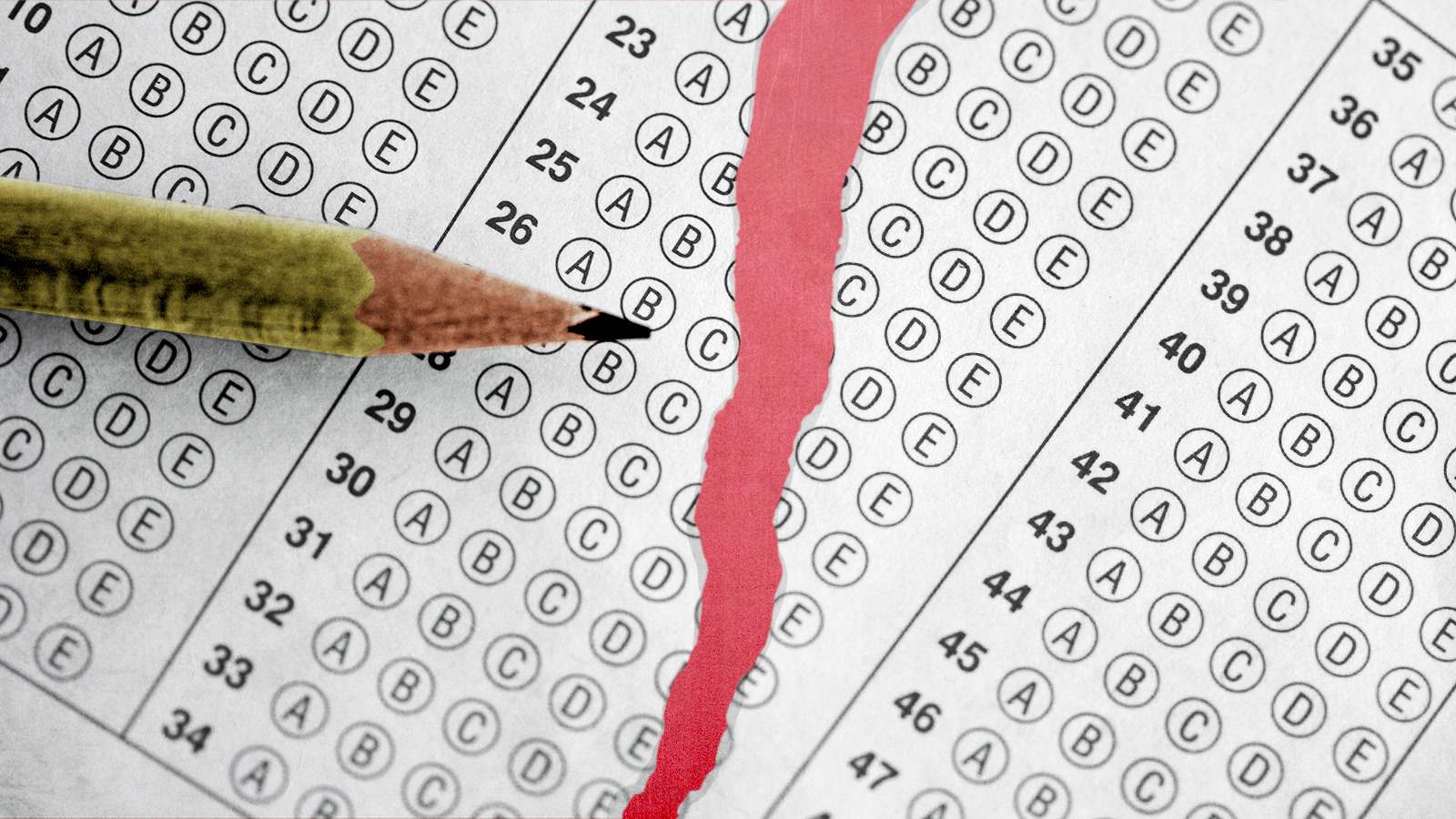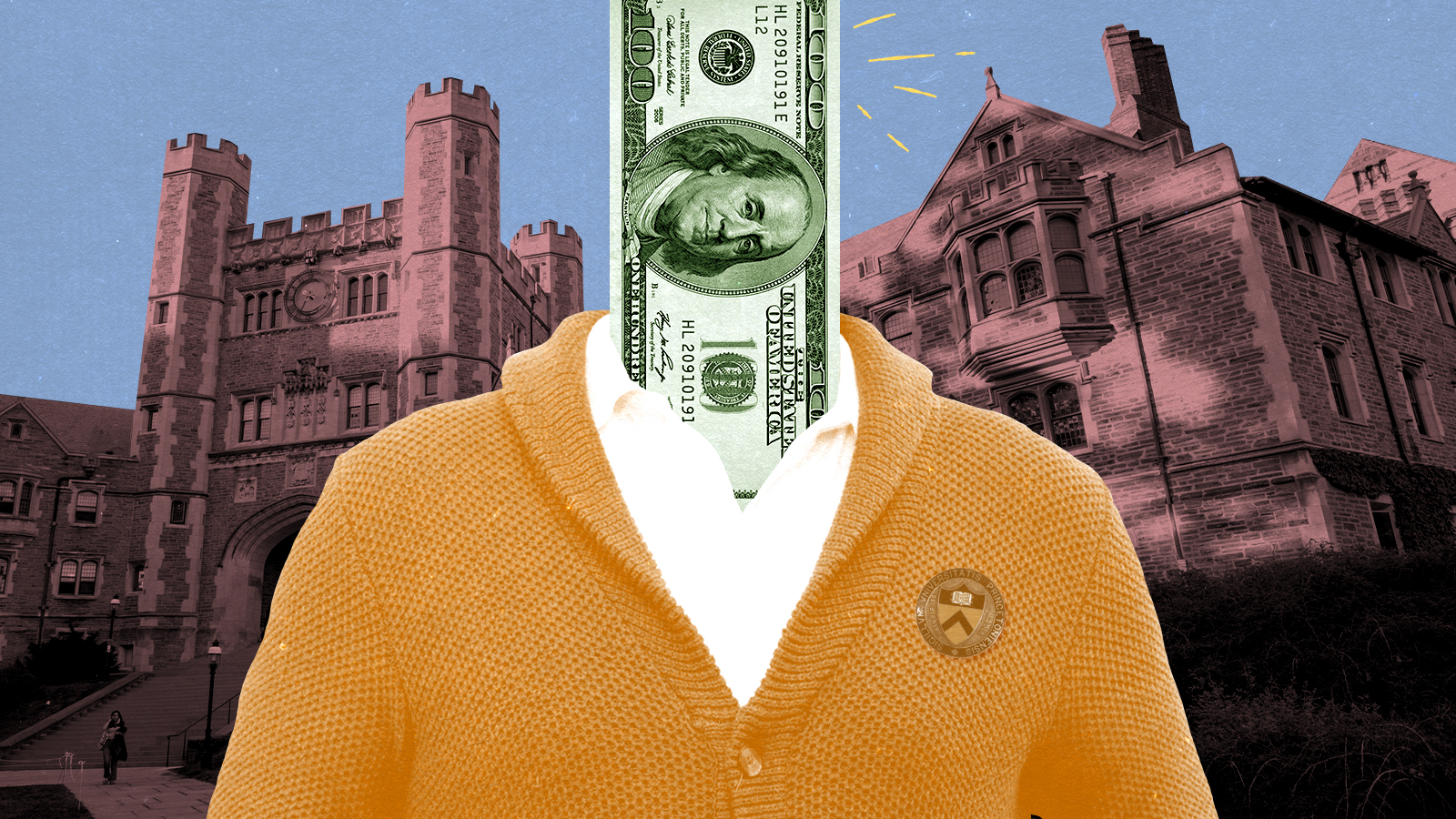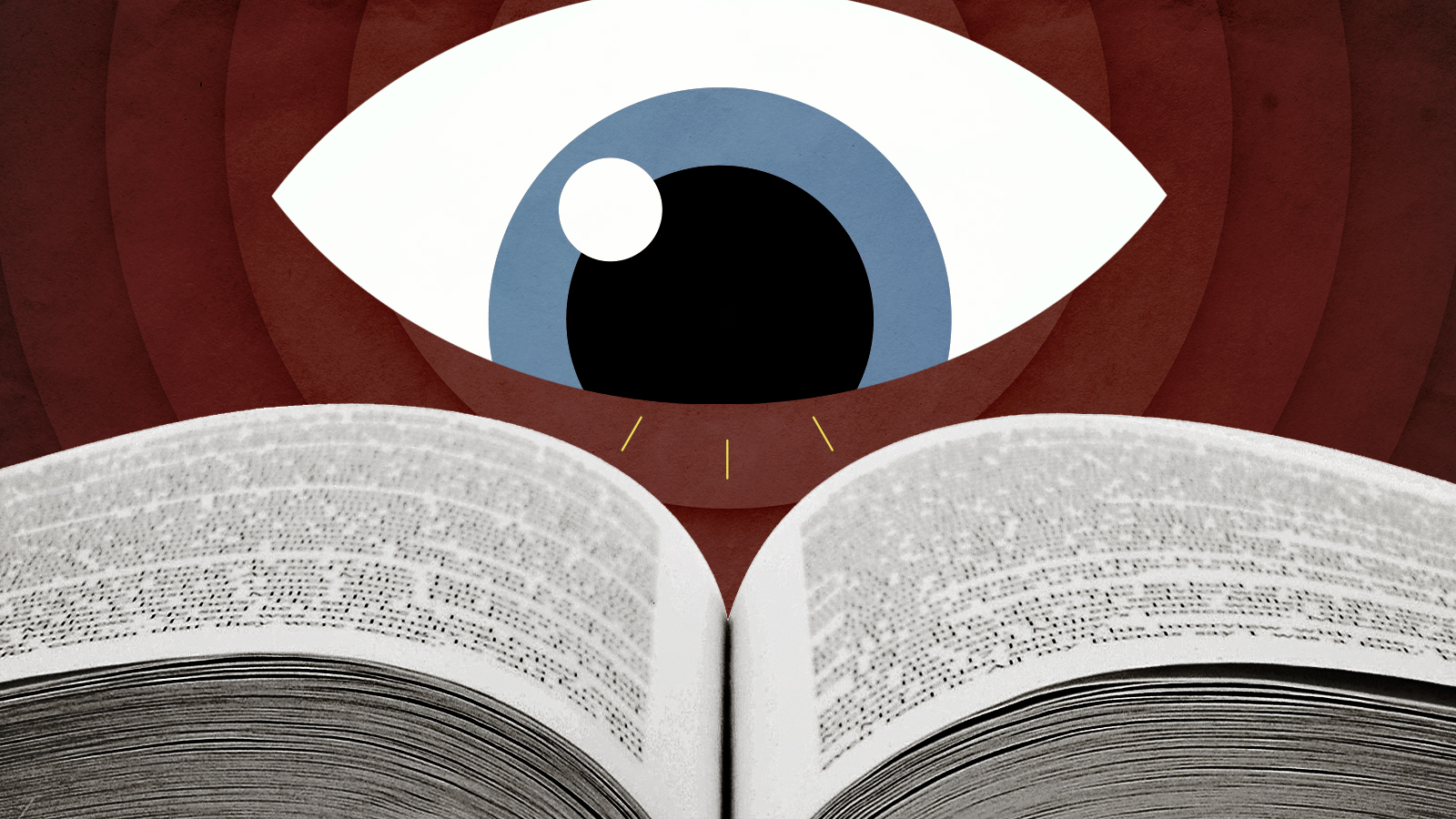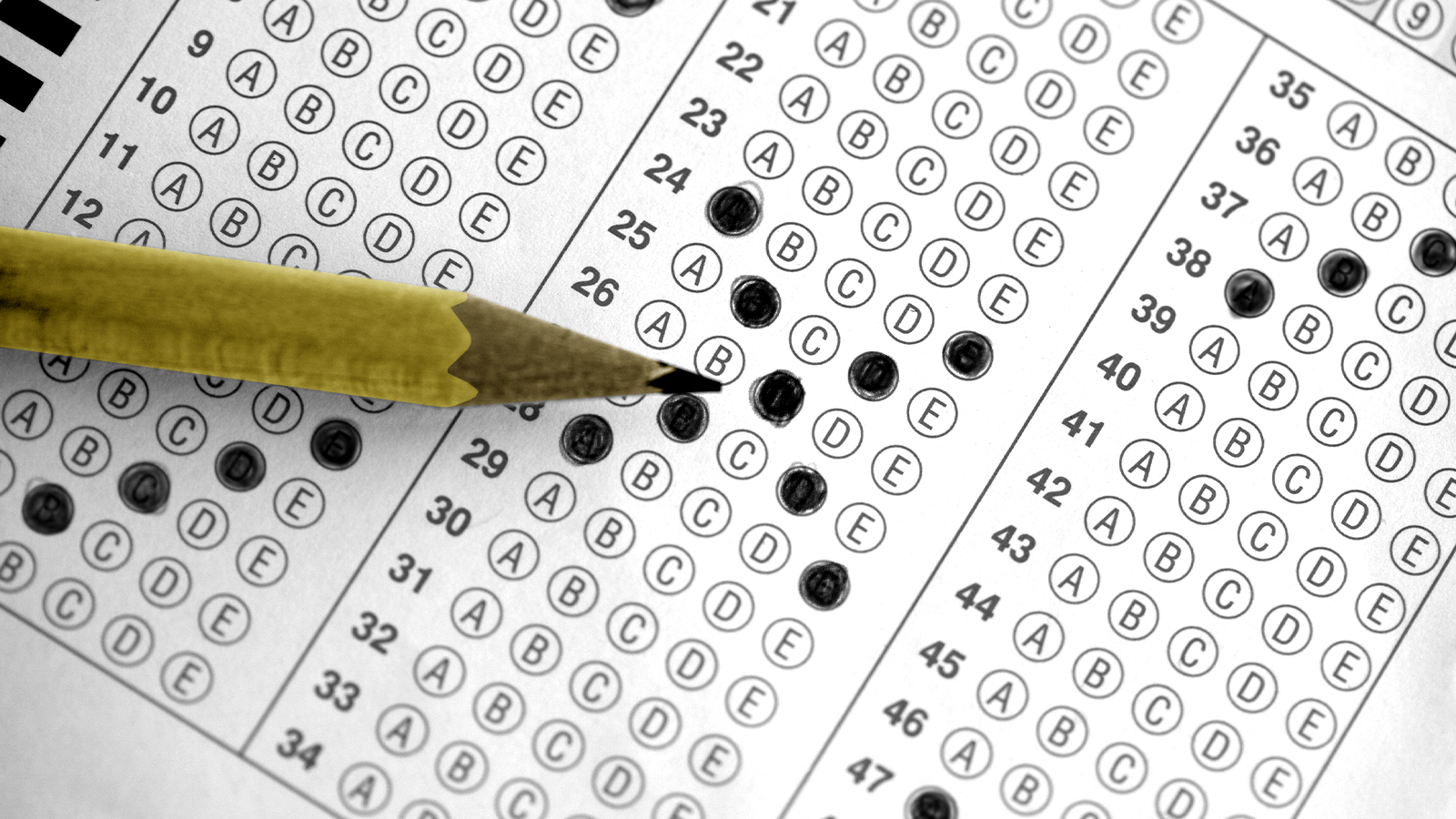Another standardized test bites the dust. Will standards follow?


A free daily email with the biggest news stories of the day – and the best features from TheWeek.com
You are now subscribed
Your newsletter sign-up was successful
For nearly 75 years, the Law School Admissions Test (LSAT) has been a rite of passage for aspiring attorneys. Although the format has varied since it was first offered in 1948, the exam is best known for the logic games used to assess analytical reasoning. Does a statement like "A university library budget committee must reduce exactly five of eight areas of expenditure—G, L, M, N, P, R, S, and W—in accordance with the following conditions…" stimulate your faculties or bring out a cold sweat? Whether and where you attend law school depends on the answer.
Future generations of students could avoid such trials, though. In a recommendation issued today, the American Bar Association (ABA) signaled that it may no longer require law schools to use the LSAT in their admissions process. (A representative of the ABA contacted us to clarify that the recommendation must be approved by the ABA House of Delegates and a similar measure was withdrawn in 2018).
The renewed proposal change is only the most recent step in a broader turn against standardized testing, including in legal education. Like the SAT in undergraduate admissions, the LSAT has been accused of racial bias and promoting a destructive obsession with rankings. Critics also argue that the LSAT, which was designed to predict academic performance, has little connection to professional accomplishment. That's why Tucker Carlson's demand for the release of Ketanji Brown Jackson's LSAT scores was so provocative.
The Week
Escape your echo chamber. Get the facts behind the news, plus analysis from multiple perspectives.

Sign up for The Week's Free Newsletters
From our morning news briefing to a weekly Good News Newsletter, get the best of The Week delivered directly to your inbox.
From our morning news briefing to a weekly Good News Newsletter, get the best of The Week delivered directly to your inbox.
The new standards don't address any of these issues explicitly. Since the same ABA division recently tried to impose trendy diversity training and "cross-cultural competency" instruction as conditions of accreditation, it's not crazy to think politics played into the decision. Fear that the Supreme Court will ban or severely restrict affirmative action may also have encouraged the shift.
The incentives for law schools to dump the LSAT aren't only political, though. In addition to the moral panic that's gripped higher education over the last few years, law schools face declining applications after a pandemic-driven spike in interest. That's partly because word is getting out that the legal profession isn't as glamorous or lucrative as people imagine or the media depict. Accepting alternate exams, such as the GRE, or going test-optional altogether can help pump up enrollment, particularly at marginal institutions.
Would-be lawyers still have to pass the bar, though. Thanks to reformers' efforts, the ABA adopted stricter requirements for the graduates of accredited schools to pass the bar exam in 2019. If critics are right that the LSAT is unnecessary, bar passage rates shouldn't decline as the test becomes less important to admissions. If they do, expect attacks on the bar to mount in the next phase of the movement against tests.
This Talking Point was updated at 12:40 p.m., May 6, 2022.
A free daily email with the biggest news stories of the day – and the best features from TheWeek.com
Samuel Goldman is a national correspondent at TheWeek.com. He is also an associate professor of political science at George Washington University, where he is executive director of the John L. Loeb, Jr. Institute for Religious Freedom and director of the Politics & Values Program. He received his Ph.D. from Harvard and was a postdoctoral fellow in Religion, Ethics, & Politics at Princeton University. His books include God's Country: Christian Zionism in America (University of Pennsylvania Press, 2018) and After Nationalism (University of Pennsylvania Press, 2021). In addition to academic research, Goldman's writing has appeared in The New York Times, The Wall Street Journal, and many other publications.
-
 Political cartoons for February 12
Political cartoons for February 12Cartoons Thursday's political cartoons include a Pam Bondi performance, Ghislaine Maxwell on tour, and ICE detention facilities
-
 Arcadia: Tom Stoppard’s ‘masterpiece’ makes a ‘triumphant’ return
Arcadia: Tom Stoppard’s ‘masterpiece’ makes a ‘triumphant’ returnThe Week Recommends Carrie Cracknell’s revival at the Old Vic ‘grips like a thriller’
-
 My Father’s Shadow: a ‘magically nimble’ film
My Father’s Shadow: a ‘magically nimble’ filmThe Week Recommends Akinola Davies Jr’s touching and ‘tender’ tale of two brothers in 1990s Nigeria
-
 Where will international students go if not the US?
Where will international students go if not the US?Talking Points China, Canada and the UK are ready to educate the world
-
 Smartphones face bans in US schools
Smartphones face bans in US schoolsTalking Points Educators say the devices disrupt classrooms
-
 What conservatives really mean when they say 'groomer'
What conservatives really mean when they say 'groomer'Talking Point
-
 What the 'Don't Say Gay' bill debate tells us about democracy
What the 'Don't Say Gay' bill debate tells us about democracyTalking Point
-
 Princeton gives a pay raise to some of the most privileged people in the world
Princeton gives a pay raise to some of the most privileged people in the worldTalking Point
-
 Transparency is good, but it won't end the CRT debate
Transparency is good, but it won't end the CRT debateTalking Point
-
 Meet the new Harvard, same as the old Harvard
Meet the new Harvard, same as the old HarvardTalking Point
-
 Americans just want their schools left alone
Americans just want their schools left aloneTalking Point
